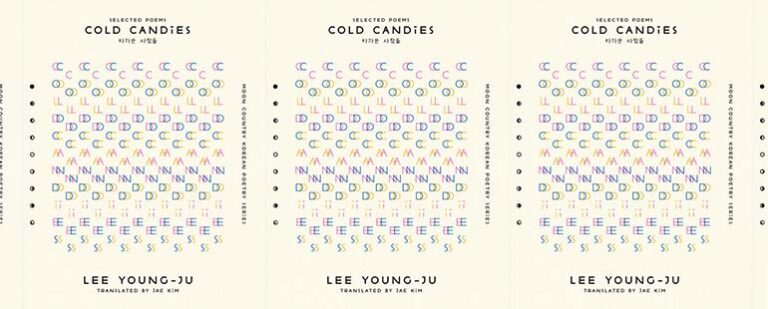A Writer Between Worlds

The Japanese writer Tawada Yôko is probably best known in the U.S. for her genre-bending dystopian novel The Emissary, which won the 2018 National Book Award for Translated Literature (the excellent English rendition is by her longtime Japanese to English translator, Margaret Mitsutani). The book describes a blighted world in which the elderly cannot die, and the young, sickened by environmental poisoning, bear the burden of illness and death. That reversal creates the conditions for an eerily beautiful exploration of time and mortality that manages to be as open-hearted as it is sorrowful. Idiosyncratic, quirky, and totally twenty-first–century in feel, it nevertheless draws on traditional Buddhist-inflected ideas of evanescence and mutability that would have been instantly recognizable to Murasaki Shikibu, author of the eleventh-century Tale of Genji. In both books, the brevity of human connection does not reduce its beauty—on the contrary, understanding and loss are seen as intertwined.
Tawada’s work is almost always discussed within a Western cultural context, rather than a Japanese one. This may be because of her unusual personal history: a job opportunity took her to Hamburg after college and she decided to stay on, earning a doctorate in German literature from the University of Zurich in 2000. Since 2006, she has lived in Berlin, writing in both Japanese and German, sometimes moving back and forth between the two languages in the same piece of fiction, fascinated by the interplay between unlike linguistic systems. “When you make a connection between two words that lie miles apart, a kind of electricity is produced in your head,” she writes.
Culture shock is, in fact, central to Tawada’s subject matter: her characters tend to be travelers of one kind or another—mail-order brides, bewildered exchange students—forced to wander in the gap between languages, where the meaning of ordinary daily experience turns slippery and weird. Consider “The Guest,” translated into English from the German by Susan Bernofsky, in which her narrator finds herself in a German flea market, struggling to make sense of the many odd objects arrayed in no apparent order, until, finally, she picks up what looks to be a book:
On the book’s cover I saw letters that were written not from left to right, but in a circle. I asked the man who was standing there hawking his wares in what language the book was written, since I don’t know of any language whose letters are arranged in a circle. He shrugged his shoulders and said it wasn’t a book, it was a mirror. I refused to look at the thing he was calling a mirror. Maybe it isn’t a book, I conceded, but I would still like to know what’s going on with this writing. The man grinned and replied: To our eyes, you look exactly like this writing. That’s why I said it was a mirror. I rubbed my forehead from left to right, as though rewriting my face.
At home, the object turns out to be not a book at all but a box containing cassette tapes—a German-language audiobook. The voice that ushers forth is alternately seductive and overwhelming, consuming and soothing, sinister and loving, and it continues to fill the apartment even when she turns off the tape player, so that her neighbors assume she has somebody living with her—the “guest” of the title.
Bernofsky describes the author’s method this way:
The interlingual space her texts carve out for themselves draws attention not only to the different ways in which different languages signify, but also (perhaps as a corollary thereof) to how strange it is that there should be signification at all. If some things around us (a clock, the cover of a book, street signs) must be read to be understood, who’s to say we needn’t do the same with other sorts of objects: a jacket, a radio, a candlestick, a face? This faux-naive view of the universe turns an ordinary street scene into a place of wonder and makes the plight of the foreigner struggling to understand a new physical as well as linguistic world appear to be a plausible metaphor for the human condition.
One could thus argue that Tawada, acutely attuned to the fundamentally surreal nature of reality, is a direct descendant of the European fabulists of the nineteenth and twentieth centuries. Gogol can feel like a kindred spirit; so can Bruno Schulz, with his dreamlike receptivity to the hidden strangeness of ordinary domestic life. The most apt comparison, however, is undoubtedly Kafka, with his love of paradox and the absurd. Tawada’s characters can feel like contemporary updates of Kafka’s desperate seekers, thrown into a multicultural, multilingual world. But while Kafka’s characters wander various social spaces—government bureaucracy, the court system—Tawada’s get lost in the labyrinth of language, alternately beguiled and confused but never any closer to a way out.
This brings us back to the underlying Japaneseness of Tawada’s work. For Tawada, selfhood is always in flux, a function of language and shifting desire. That view is postmodern, of course, but it is also Buddhist, and very much a part of traditional Japanese culture. Over and over again, her characters are forced to face their own mutability, at various times switching genders, bodies, even species, just as in a fable or a particularly wild Kabuki play. In The Emissary, young boys turn into girls following the phases of the moon; in her 2011 novel, Memoirs of a Polar Bear, published in translation by Bernofsky in 2016, a circus bear imagines herself into the body of her human trainer; and in The Bridegroom Was a Dog, an ordinary businessman turns weirdly, inexplicably canine.
Bridegroom won the Akutagawa Prize in 1993, and was released in the U.S. in 1998, in a marvelous translation by Mitsutani. It is set in the Tokyo suburbs, and it shows what Tawada can do when she returns to Japanese territory, looking at the contradictions within a single culture, rather than the gaps between cultures. The story of a love affair between Iinuma, an oddly doglike man, (the joke is that inu means dog), and Miss Mitsuko Kitamura, the owner of the local after-school program, it is the most formally conventional of Tawada’s fictions, but also the most gleefully transgressive. The start is a story within the story, a fable Miss Kitamura tells the kids at her after-school:
Once upon a time, there was a little princess who was still too young to wipe herself after she went to the lavatory, and the woman assigned to look after her was too lazy to do it for her, so she used to call the princess’s favorite black dog and say, ‘If you lick her bottom clean, one day she’ll be your bride,’ and in time the princess herself began looking forward to that day . . . .
Soon enough, real life begins to imitate art when Iinuma appears at the door. He’s neatly dressed in an immaculate white shirt, without a trace of sweat despite the hot weather, and he’s carrying an old-fashioned leather suitcase. “I’m here to stay,” he announces, though they’ve never met before. For Miss Kitamura, the impact is instantaneous, a kind of magic spell. It is as if she’s suddenly fallen into a waking dream:
Mitsuko’s eyes widened and rolled upward, her mouth dropped open and she forgot to close it, and since she couldn’t think what to say, she kept touching her throat with her fingertips, while the man silently put his suitcase down on the veranda, took off his wristwatch, and gave it two or three hard shakes as if to get the water out of it.
‘Did you get my telegram?’ he asked with a knowing laugh.
It doesn’t matter that she shakes her head no; Iinuma carries his suitcase inside. Almost immediately, daily life begins to reshape itself around his relentlessly doggish routine, a mixture of eating, sniffing around for scents, napping, and ferociously strange sex, “after which he always went out alone into the darkness to spend half the night running around god knows where.” Miss Kitamura can’t quite understand what’s happening to her, but there’s nevertheless something holding her in place. The truth is that she has started to notice things about herself that she had never recognized before, valuable things:
Her sweat carried various faint but distinct aromas not unlike those of seaweed, shellfish, citrus fruit, milk, and iron, depending on minor shifts in mood, so that when she was surprised by something, for instance, she’d notice a certain odor in the air around her and think, ‘Ah. I must be surprised,’ which is how she got in the habit of smelling herself as she reacted to things.
Bridegroom is thus about the growth of the instinctual, the getting and sending of the “telegram” that is true understanding. It deftly contrasts the wild and the “civilized” in its characters, quickly expanding out to include the wife that Iinuma has left behind, Ryoko—herself quite canine by now, and not interested in taking him back—as well as the children who attend Miss Kitamura’s afterschool program and the mothers who pack their lunches and try to impress upon them the need to be polite and keep up appearances. The story’s conclusion, which involves one last telegram, is open-ended and thrilling as it honors the mystery of selfhood.
Part of the pleasure is how distinctively Japanese that mystery is made to feel. Iinuma’s grandmother wails that he is possessed by an evil spirit—an explanation that the denizens of Genji would have readily accepted a thousand years earlier. When the thoroughly modern Miss Kitamura visits Ryoko, she finds a torn segment of sacred rope from a Shinto shrine, meant to keep bad spirits away—clearly a trophy from some kind of illicit, nighttime adventure. Ryoko sniggers at the idea that a bit of holy rope could keep her from doing what she wants to do, and in the scene that follows, she is indeed far more intent on seducing Miss Kitamura than negotiating her husband’s return. Tawada is constantly reminding us of the premodern, instinctual world lurking beneath this one, and of the powerful gravitational pull it exerts on us despite our carefully cultivated air of rationality.
In a wonderful essay on the poet Paul Celan, again translated by Bernofsky, Tawada writes that his words “are not containers, they are openings.” The same can be said for her work, in its devotion to questioning and its resistance to easy answers, its suspicion of categories and labels, its readiness to embrace flux and uncertainty. In an era of global mix and global anxiety, when the languages we speak feel less like windows on the world and more like funhouse mirrors, Tawada—modest, kind, honest, devilishly unafraid—may be the writer we so desperately need.
This piece was originally published on July 10, 2020.


